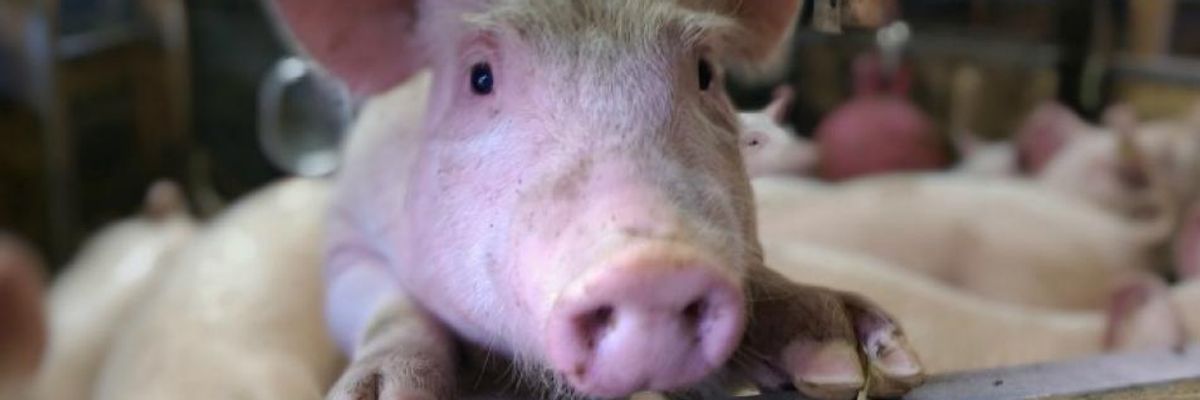As the World Health Organization (WHO) prepares to select its new director general, public health, food, and science experts are urging the new leader to take action on the issue of factory farms and global threats they pose.
In an op-ed published Sunday at the New York Times, Scott Weathers, Sophie Hermanns, and Mark Bittman reference comments last year by the outgoing director general, Margaret Chan. She referred to "three slow-motion disasters: a changing climate, the failure of more and more mainstay antimicrobials, and the rise of chronic noncommunicable diseases as the leading killers worldwide." If left unchecked, they "will eventually reach a tipping point where the harm done is irreversible," she said.
"Factory farming," which has driven an increase in meat production and consumption, "connects the dots" between the three disasters, write Weathers, a graduate student in public health at Harvard, Hermanns, a graduate student at Cambridge and visiting fellow at Harvard, and Bittman, who is on the faculty of the Mailman School of Public Health at Columbia.
The trio cites the links between chronic diseases and meat-heavy diets, the increased human exposure to antibiotics--thereby contributing to scourge of antimicrobial resistance--as a result of their rampant use in industrial farming, and the climate impacts from factory farms as a result of their greenhouse gas emissions.
They also point to an open letter released Monday and signed by over 200 health and science experts (including Weathers, Hermanns, and Bittman). Echoing the op-ed, it calls on the organization's new head "to publicly acknowledge the harm that industrial animal farming inflicts on global health" as well as "limit the expansion of industrial animal farming and encourage dietary recommendations that reduce meat consumption."
It states:
The harms caused by large-scale, industrial animal farming are global in nature and felt beyond those who consume meat, dairy, and eggs. Climate change does not recognize borders and neither do drug-resistant infectious diseases. Although they contribute least to the global burden of animal farming, the world's poorest countries are also the most vulnerable to rising water levels, natural disasters caused by climate change, food insecurity, and infectious diseases. Finding solutions to problems posed by industrial animal farms and shifting us toward more healthful agriculture will therefore require the global leadership of WHO.
Just as the WHO has bravely confronted companies that harm human health by peddling tobacco and sugar-sweetened beverages, it must not waver in advocating for the regulation of industrial animal farming.
Among the specific policy recommendations the letter lays out for the new director general are to:
- Discourage member states from subsidizing factory farming and its inputs, which can cause significant harm to the public.
- Work closely with ministers of health and agriculture to formulate policies that advocate for a greater proportion of plant-based foods in the diets of member states.
- Work with all relevant ministries, including those outside of health, to reduce the size and number of factory farms to better balance dietary need and ecological capacity.
The WHO's governing body will choose between three final candidates on Tuesday.

